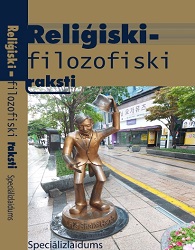Zainichi Koreans in Japanese Far-Right Discourse: Case of “Special Privileges”
Zainichi Koreans in Japanese Far-Right Discourse: Case of “Special Privileges”
Author(s): Arvydas KumpisSubject(s): Governance, Ethnic Minorities Studies, Sociology of Politics, Identity of Collectives
Published by: Latvijas Universitātes Filozofijas un socioloģijas institūts
Keywords: Zainichi Koreans; national identity; Japan;
Summary/Abstract: This article aims to explain the reasons behind “the special privileges for Zainichi Koreans”, a fictional concept of Japanese right-wingers. I contend that the inclusivity issue which is seen in the “special privileges” is stemming from the economical premises defined by A. Wimmer (1997). The sharing of scarce resources pushed Japanese nativists to start Action Conservative Movement (ACM). Among them, Makoto Sakurai, the founder of Zaitokukai movement, was mostly triggered by the social welfare programs to Zainichi Koreans who, according to him, were not Japanese citizens. The analysis of Makoto Sakurai’s blog “Doronpa no hitorigoto” shows that the initial phase of Zaitokukai activism indeed was highly dependent on economic arguments but eventually historical revisionism overshadowed this narrative and blurred the ideational boundaries of Zaitokukai activism.
Journal: Religiski-filozofiski raksti
- Issue Year: 2022
- Issue No: Special
- Page Range: 153-163
- Page Count: 11
- Language: English

